Filter by

A History of American Puritan Literature
For generations, scholars have imagined American puritans as religious enthusiasts, fleeing persecution, finding refuge in Massachusetts, and founding 'America'. The puritans have been read as a product of New England and the origin of American exceptionalism. This History challenges the usual understanding of American puritans, offering new ways of reading their history and their literary cult…
- Edition
- -
- ISBN/ISSN
- 9781108878425
- Collation
- -
- Series Title
- -
- Call Number
- -

As time goes by :tense and universal grammar
"A Bradford book."OCLC-licensed vendor bibliographic record.
- Edition
- -
- ISBN/ISSN
- 9780262275712
- Collation
- 1 online resource (xii, 242 pages) :illustrations
- Series Title
- -
- Call Number
- -
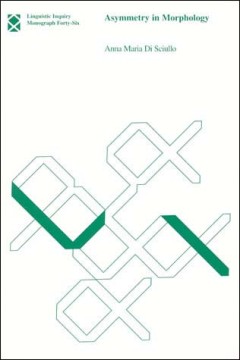
Asymmetry in morphology
Di Sciullo argues that the asymmetric property of morphological relations is part of the language facility. She proposes a theory of grammar, Asymmetry Theory, according to which generic operations have specific instantiations in parallel deviations of the computational space.OCLC-licensed vendor bibliographic record.
- Edition
- -
- ISBN/ISSN
- 9780262302845
- Collation
- 1 online resource (xix, 234 pages) :illustrations.
- Series Title
- -
- Call Number
- -
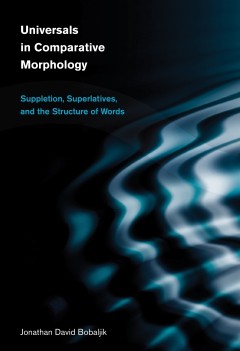
Universals in comparative morphology :suppletion, superlatives, and the struc…
An argument for, and account of linguistic universals in the morphology of comparison, combining empirical breadth and theoretical rigor. This groundbreaking study of the morphology of comparison yields a surprising result: that even in suppletion (the wholesale replacement of one stem by a phonologically unrelated stem, as in good-better-best) there emerge strikingly robust patterns, virtually…
- Edition
- -
- ISBN/ISSN
- 9780262305525
- Collation
- 1 online resource (xiii, 313 pages) :illustrations.
- Series Title
- -
- Call Number
- -

The connectives
A comprehensive investigation of the sentence connectives--and, or, if, not--with special attention to their logical properties.OCLC-licensed vendor bibliographic record.
- Edition
- -
- ISBN/ISSN
- 9780262298834
- Collation
- 1 online resource (xvii, 1492 pages)
- Series Title
- -
- Call Number
- -
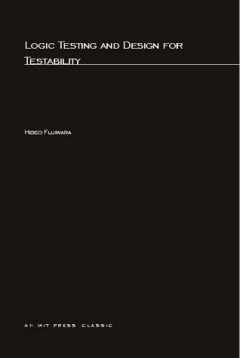
Logic Testing and Design for Testability
"Today's computers must perform with increasing reliability, which in turn depends on the problem of determining whether a circuit has been manufactured properly or behaves correctly. However, the greater circuit density of VLSI circuits and systems has made testing more difficult and costly. This book notes that one solution is to develop faster and more efficient algorithms to generate test p…
- Edition
- -
- ISBN/ISSN
- 9780262256186
- Collation
- -
- Series Title
- -
- Call Number
- -
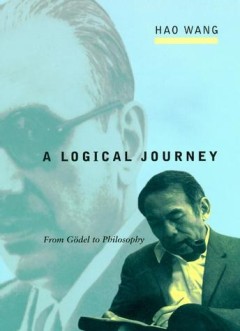
A Logical Journey: From Gödel to Philosophy
Hao Wang (1921-1995) was one of the few confidants of the great mathematician and logician Kurt Godel. A Logical Journey is a continuation of Wang's Reflections on Kurt Godel and also elaborates on discussions contained in From Mathematics to Philosophy. A decade in preparation, it contains important and unfamiliar insights into Godel's views on a wide range of issues, from Platonism and the na…
- Edition
- -
- ISBN/ISSN
- 9780262285766
- Collation
- -
- Series Title
- -
- Call Number
- -
Machine Translation: A View from the Lexicon
"Logo for the Macintosh teaches the art of programming to first time programmers. It begins with Turtle Geometry, a series of exercises involving both Logo programming and geometric concepts. Later chapters illustrate more advanced topics, such as the famous DOCTOR program with its simulated psychotherapist and an INSTANT program that enables parents and teachers to create a programming environ…
- Edition
- -
- ISBN/ISSN
- 9780262290838
- Collation
- -
- Series Title
- -
- Call Number
- -
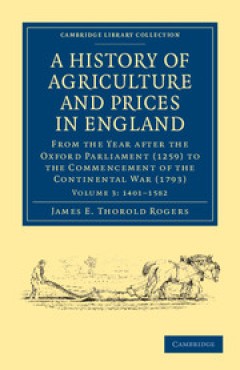
A History of Agriculture and Prices in England
Since early times, agriculture has been pivotal to England's economy. This is the fifth in a magisterial seven-volume, eight-piece compilation by the economist James E. Thorold Rogers (1823–90), which represents the most complete record of produce costs in England between the thirteenth and eighteenth centuries. Drawing on a variety of sources including college archives and the Public Record …
- Edition
- -
- ISBN/ISSN
- 9781139094818
- Collation
- -
- Series Title
- Cambridge Library Collection - British and Irish History, General
- Call Number
- -

Interface strategies : optimal and costly computation
Taking Chomsky's hypothesis of optimal design as a starting point, repair strategies based on computing reference-sets apply in restricted areas of the interface-quantifier scope, focus, anaphora and implicatures.OCLC-licensed vendor bibliographic record.
- Edition
- -
- ISBN/ISSN
- 9780262282277
- Collation
- 1 online resource (x, 340 pages) : illustrations.
- Series Title
- -
- Call Number
- 150 REI i
 Computer Science, Information & General Works
Computer Science, Information & General Works  Philosophy & Psychology
Philosophy & Psychology  Religion
Religion  Social Sciences
Social Sciences  Language
Language  Pure Science
Pure Science  Applied Sciences
Applied Sciences  Art & Recreation
Art & Recreation  Literature
Literature  History & Geography
History & Geography